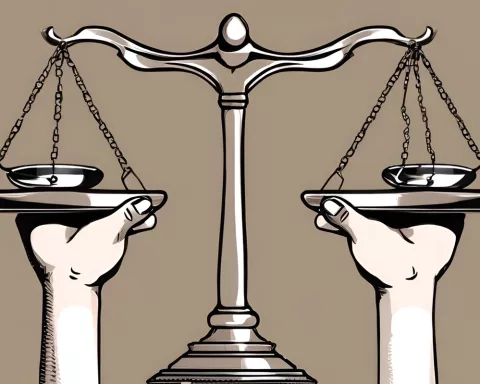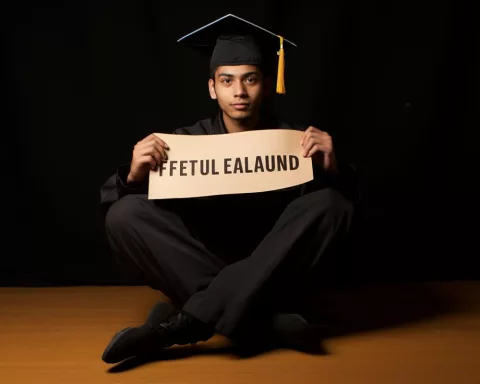The proposed tuition and residence fee increase by South African Higher Education Minister Blade Nzimande has sparked opposition from the South African Union of Students (SAUS) and allegations of corruption against Nzimande. The proposed hike, coupled with a decrease in the National Student Financial Aid Scheme (NSFAS) budget, may reduce the number of financially assisted students. Calls for Nzimande’s resignation are increasing, and the future of higher education in South Africa is in jeopardy. The crisis highlights the need for transparent educational policies and tackling corruption.
The Dispute Over Nzimande’s Suggested Fee Hike and Corruption Accusations: A Detailed Analysis
Find out more about the controversy surrounding the proposed tuition and residence fee increase of 4.5% between 2025 and 2027, put forward by Higher Education Minister Blade Nzimande, and the corruption allegations against him. The South African Union of Students (SAUS) is objecting to the proposed hike, which coupled with a 10% decrease in NSFAS budget, may shrink the number of financially assisted students. Calls for Nzimande’s resignation are growing, and the future of higher education in South Africa is at stake.
A Stand Against Policy Changes
The South African Union of Students (SAUS) is making waves in the turbulent sea of higher education policy. The organization has strongly objected to the proposed tuition and residence fee increase of 4.5% between 2025 and 2027, put forward by Higher Education Minister Blade Nzimande. The revelation, coming amid corruption allegations against the Minister, has stirred up the South African educational community.
Nzimande is presently being scrutinized for supposed illicit benefits from profitable National Student Financial Aid Scheme (NSFAS) direct payment contracts. The proposed fee hike added to the growing opposition towards him. SAUS argues that this increase, coupled with a 10% decrease in NSFAS budget, will drastically shrink the number of financially assisted students, leading to instability in the higher education sector.
Corruption Claims and Opposition
The Organisation for Undoing Tax Abuse (OUTA), a prominent watchdog group, has joined the chorus against Nzimande. They claim to possess damaging audio recordings that will unveil the truth. Concurrently, Ernest Khosa, the NSFAS board chair, fervently defends his integrity, even in the face of the escalating controversy.
Additionally, Neo Lebethe from the National Union of Public Service and Allied Workers (NUPSAW) has issued a challenge. He maintains that Nzimande should bear responsibility for the chaos in his department. Despite Nzimande’s claims of innocence and accusations of a targeted defamation campaign, his position seems increasingly shaky.
In the intricate political maneuvers, the Democratic Alliance has also begun to act. Their announcement of prosecution via the Special Investigations Unit (SIU) and Public Prosecutor adds another layer of complexity to the ongoing crisis.
Resignation Demands and Impending Consequences
As the controversy intensifies, calls for Nzimande’s resignation are growing. NUPSAW is the most recent organization to demand that the Higher Education Minister relinquish his position. Nonetheless, Nzimande remains firm amidst the storm, dismissing the allegations and asserting his innocence.
The unfolding scenario provides a stark portrayal of the current state of South African higher education, trapped in the crossfire of political maneuvering and budgetary constraints. The proposed tuition hike, the corruption charges, and the subsequent opposition all hint at the brewing tensions underlying this crucial national matter.
The country is closely monitoring the developments as Nzimande continues to defend his stance. The consequences will significantly impact the future of higher education in South Africa, a country striving to strike a balance between growth, education, and accountability.
The Implication on Education’s Future
As the nation’s attention is captured by this ongoing crisis, a broader question arises: what will be the ramifications on the future of higher education in South Africa? This incident emphasizes the need for a fair and transparent approach to educational policies, a critical factor in cultivating the country’s intellectual capabilities. It also underscores the urgency to tackle corruption, a problem that looms large over the nation’s political arena.
The country is holding its breath as it watches the high-stakes drama unfold. The resolution of this issue will provide valuable insight into South Africa’s dedication to education, transparency, and accountability.
1. What is the proposed tuition and residence fee increase in South Africa?
The Higher Education Minister Blade Nzimande has proposed a 4.5% increase in tuition and residence fees between 2025 and 2027.
2. What is the opposition to the proposed fee hike?
The South African Union of Students (SAUS) is opposing the proposed fee hike as it could lead to a decrease in the number of financially assisted students, coupled with a 10% decrease in the NSFAS budget.
3. What are the corruption accusations against Nzimande?
Nzimande is being accused of benefiting from profitable NSFAS direct payment contracts, leading to corruption allegations against him.
4. Who is demanding Nzimande’s resignation?
NUPSAW is the most recent organization to demand the resignation of Higher Education Minister Blade Nzimande.
5. What are the implications of this crisis on the future of higher education in South Africa?
The crisis highlights the need for fair and transparent educational policies and tackling corruption, which are critical factors in cultivating the country’s intellectual capabilities.
6. What is the involvement of the Democratic Alliance in the crisis?
The Democratic Alliance has announced prosecution via the Special Investigations Unit (SIU) and Public Prosecutor, adding another layer of complexity to the ongoing crisis.












